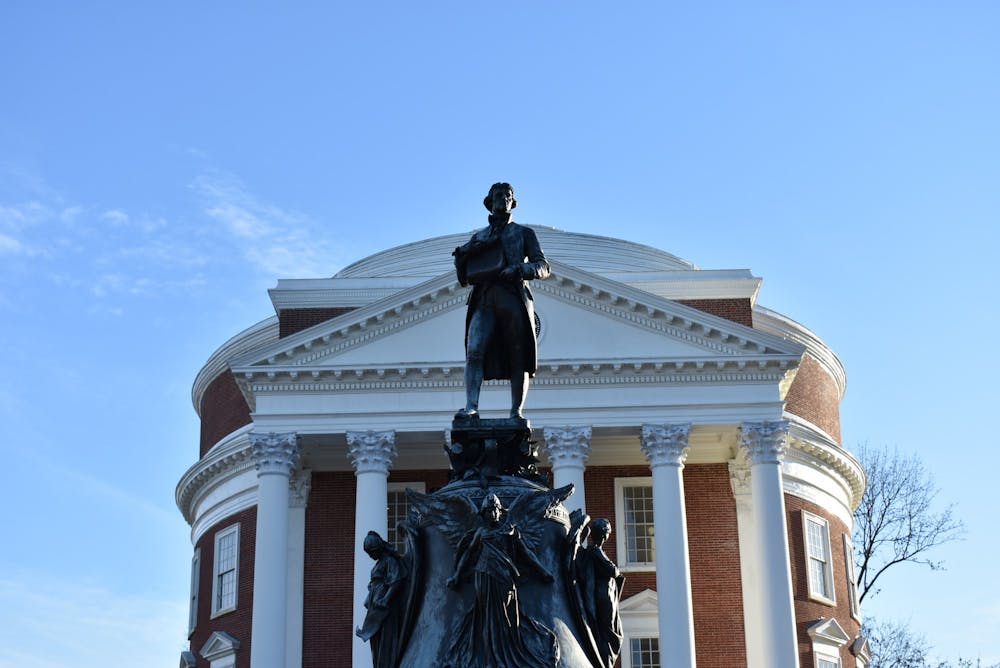Student Council voted to pass SB21-12, A Bill to Amend the Bylaws to Create a First-Generation Low-Income Advocacy Board, and SB21-13, A Bill to Approve Newly Created Contracted Independent Organizations, at its meeting Tuesday night. SR21-15, A Resolution Condemning the “Cancel Culture” Invading the University of Virginia, did not pass but prompted a debate among representatives and community students.
Twenty-three representatives voted to pass SB21-12, a bill sponsored by Ellen Yates, Student Council President and fourth-year College student. The First-Generation Low-Income Coalition and Advocacy Board codified by SB21-12 will be led by the chair of the Financial Accessibility Committee, a position currently held by third-year College student Cecilia Cain.
The advocacy board partners with Student Financial Services to address FGLI concerns, discuss existing and potential policies and jointly advocate for the needs of FGLI students. The coalition — which was first started in 2020 under former Student Council President Ellie Brassachio’s administration — will include representatives from First-Generation Low-Income Partnership at U.Va., Hoos First Look, Rise Together, UndocU.Va. and Questbridge Scholars.
The second piece of legislation passed, SB21-13, was sponsored by Shefalika Prasad, vice president for organizations and third-year College student. All 23 representatives voted in favor of the bill, which approved the creation of two new CIOs — the Cavalier Flight Club and All Girls Stem. The Cavalier Flight Club “exists to provide aspiring aviators an avenue for exploring the science and industry of flight,” while All Girls Stem seeks to “encourage students grades 3-8 underrepresented in STEM fields to find their passion for science and find confidence in their abilities in comfortable educational spaces.”
SR21-15, which failed to pass, was sponsored by first-year College student Rep. Nickolaus Cabrera. Three representatives — Cabrera, fourth-year Commerce student Rep. Brett Hoffman and third-year College student Rep. Mehdy Elouassi — voted in favor of the bill while 19 representatives voted against it and fourth-year College student Rep. Matthew Lord abstained.
The failed resolution cited that “individuals have been ‘canceled’ for expressing their political opinion on Grounds” and said that the Student Council Twitter page recently blocked, and then unblocked upon request, Young Americans for Freedom at U.Va. — a conservative youth activist organization on Grounds. SR21-15 also claims that a previous resolution sponsored by Cabrera was unnecessarily substituted with legislation proposed by third-year College student Rep. Ryan Alcorn.
Last semester, YAF at U.Va.’s national organization, Young America’s Foundation, posted selectively edited clips of a Student Council meeting online, which went viral and led to harassment and threats directed at representatives of color. In response to these events, Cabrera sponsored SR21-07, A Resolution Denouncing Harassment Against Members of the Student Body. The resolution was amended by Rep. Ryan Alcorn, third-year College student and president of Third Year Council, who introduced the amendment on the grounds that the original legislation focused mainly on condemning threats made against Young Americans for Freedom instead of all representatives. Alcorn’s amended bill eventually passed.
At the meeting Tuesday night, Cabrera said that members of Student Council have used “cancel culture” as “a guise for political discrimination.” Victoria Spiotto, chair of YAF at U.Va. and graduate Education student, also spoke in favor of passing SR21-15 during the community concerns portion of the meeting.
“Despite knowing about verifiable examples of harassment theft and threats, the Student Council has not taken a stand to find common ground and transcend political differences,” Spiotto said. “It is therefore shameful that members of this body have slandered our CIO, targeted our members [and] failed to act.”
The resolution’s appendix contains screenshots of several explicit Tweets from Student Council representatives denouncing YAF. Alcorn noted that these Tweets fall into the category of protected free speech.
“I would remind [Cabrera] that he is an elected representative, and his words and actions are not free from consequences,” Alcorn said during the meeting. “Being criticized or called out publicly for your ideas and resolutions is not a symbol of cancel culture — it’s just evidence of bad ideas.”
Voting for Student Council elections began Wednesday at 10 a.m. and will close Friday at 4 p.m. The ballot can be accessed by clicking on the orange “VOTE” button at the top of the Student Elections page. Students will also receive a personalized voting link from UBE.
Correction: A previous version of this article misstated that fourth-year Education student Rep. Alexis Allen abstained from the vote on SR21-15. This article has been updated to reflect that it was fourth-year College student Rep. Matthew Lord abstained from voting.







